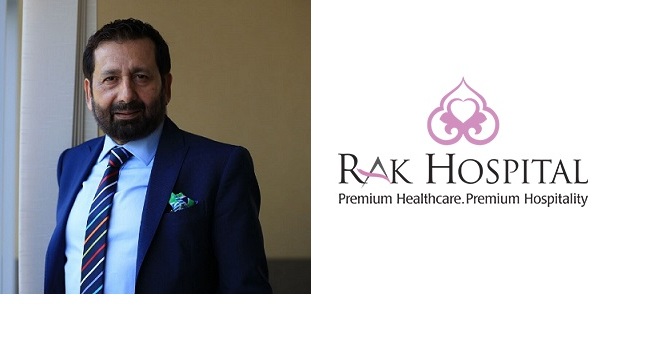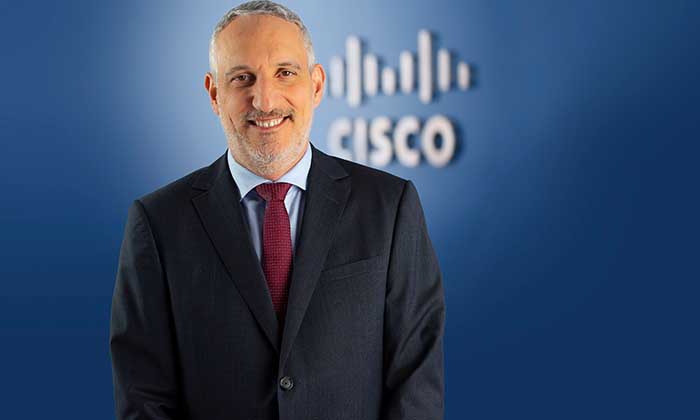90% tobacco users in the world are smokers. Nicotine Replacement Therapy most successful way of staying away from cigarettes
- Raised awareness on the effects of smoking on Second-hand smokers
- 1.2 million Premature deaths per year are related to secondhand smoke worldwide.
- Second-hand smoke responsible for low-birth weight, pregnancy complications and sudden infant death syndrome
- Only 3% people succeed in their efforts to quit, 97% fail as nicotine is highly addictive

21st September 2021; Ras Al Khaimah, UAE: Secondhand smoke has serious health repercussions which affect both adults as well as the children. Studies have shown that damage from passive smoking can occur with just 5 minutes of exposure. Raising awareness on the tobacco disaster, doctors and smoking cessation experts at the RAK Hospital’s COVID Rehabilitation webinar, educated the attendees on the impact of direct and secondhand smoke on individuals and society, and appealed people to stop smoking with immediate effect.

Doctors suggested that people should seek expert guidance on the effective methods for quitting smoking; as studies suggest only 3% smokers succeed in quitting without expert support. Though 70% would actually like to give up, between 20-30% indeed make attempts to quit.
Introducing the subject at the webinar, Professor Adrian Kennedy, Chief Wellness Officer, Arabian Wellness & Lifestyle Management at RAK Hospital said, “Tobacco kills, COVID can kill, and together it’s a disaster”.
Smokers have a higher chance of developing severe COVID and dying from COVID”, said Dr. Sai Praveen Harnath, Specialist Pulmonologist at Apollo Hospitals, Hyderabad, India, and a speaker at the session. He emphasized that post COVID recovery can be severely impacted if one is a smoker or is exposed to secondhand smoke. On the other hand, passive smokers are at a 25-30% greater risk of heart diseases than non-smokers, and have a higher risk of stroke. It also causes frequent respiratory illnesses and raises the risk of developing lung cancer by 30%.
Dr. Harnath also mentioned that damage from secondhand smoke happens within five minutes. After 20-30 minutes the blood starts clotting which increases the risk for heart attack and stroke. After two hours, an irregular heartbeat can develop and trigger other serious cardiac issues.
Speaking about lungs, he stated that the human lungs are the size of a tennis court, but when you smoke tobacco you damage that entire surface area and the size of the lung keeps decreasing. A person’s best lung size is at the age of 12 or 13 years of age, however with age we start losing lung capacity. Smoking reduces lung capacity irrespective of age. Upon quitting the capacity improves with time.
There is no safe level of exposure to second-hand smoke, which causes more than 1.2 million premature deaths per year and serious cardiovascular and respiratory diseases. Sadly, children are the involuntary recipients of tobacco smoke around the world which results in them having more ear infections, lungs issues and other problems. Almost half of children regularly breathe air polluted by tobacco smoke in public places, and 65000 die each year from illnesses attributable to second-hand smoke.
In infants, it raises the risk of ‘Sudden Infant Death Syndrome’ and in pregnant women, it causes pregnancy complications and low birth weight. Therefore, quitting tobacco must follow a social approach as when people quit they not only help themselves but the society at large.
Commenting on the subject Dr. Raza Siddiqui, Executive Director, RAK Hospital and Founding Member of ARISE, UAE, the Private Sector Alliance for Disaster Resilient Societies, a network of private sector entities led by the UN Office for Disaster Risk Reduction (UNDRR) said, “These statistics are alarming and demand an immediate shift in the mindset, since not just the direct smokers but children and adults inhaling air containing the toxin chemicals from the smoke are equally at risk.”
“During COVID infection, smokers should totally avoid smoking as lungs would be already infected and inflamed because of COVID and adding injury with tobacco will make the situation life-threatening. The only solution to this is to completely give up on smoking and lead a life free of tobacco. Exercise your right to breath and let others breathe well too”, elaborated Dr. Harnath.
Explaining why it’s hard to quit, Dr. Savita Date, Clinical Psychologist, Wellness Expert and a former visiting Consultant at RAK Hospital, says, “Nicotine is highly addictive. Inhalation is the fastest route to the brain and perhaps that is the reason 90% of tobacco users in the world are smokers. When you smoke a cigarette it only takes six to ten seconds for the nicotine to reach your brain. Nicotine receptors are activated, and promote the release of as many as 7 neurotransmitters which elevate your mood and provide pleasure. This makes smoking tobacco very addictive and difficult to stop. There is a need to understand the phenomenon so that people can be supported in the most appropriate manner.”
Data suggests that 97% people fail in their attempts of quitting. Even with the best intentions, people who have moderate or severe nicotine addiction will have difficulty stopping tobacco use without help. A person who is nicotine dependent will usually need counseling and medical help in order to stop tobacco use and stay quit. There are medications that can help reduce symptoms of nicotine withdrawal and increase comfort while trying to stop smoking.
Nicotine Replacement Therapy has proved to be the most successful way of staying away from cigarettes. Switching to “light” cigarettes or to e-cigarettes does not usually lead to quitting. Studies report that it’s far easier to quit alcohol and other drugs, than smoking.
Your healthcare provider can help you choose a treatment plan that may include medication, nicotine replacement products, and counseling to help keep you comfortable throughout the process of quitting smoking.
















